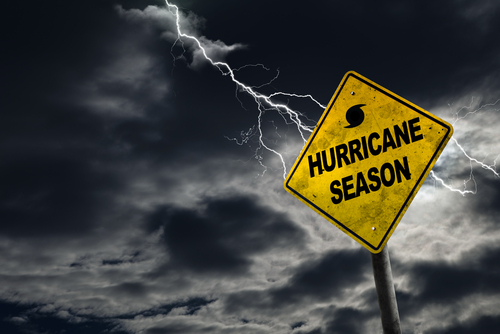As June 1 marked the beginning of the Atlantic hurricane season, businesses must revisit and reinforce their storm preparedness strategies. The looming threat of severe weather calls for thorough planning to mitigate potential disruptions. Forecasters at the National Oceanic and Atmospheric Administration (NOAA) anticipate an “above normal” hurricane season, projecting up to 25 named storms, 13 of which may escalate into hurricanes, with seven potentially reaching major hurricane status.

“Given the expected severe weather conditions, strengthening preparedness measures is more critical than ever,” said Monique McQueen, vice president of property claims at insurance company QBE North America. “The anticipated warm sea temperatures, coupled with a warming tropical Atlantic and the onset of La Niña, suggest an intense hurricane season ahead, and businesses must prioritize readiness to protect employees, property, and assets.”
Companies should ensure they maintain an up-to-date disaster response and business continuity plan, which is shared annually with key staff. To assist businesses in preparing their employees and property for hurricane season, QBE North America recommends the following actions as part of the plan:
People
Prioritizing employee safety is essential. Businesses are advised to maintain formal procedures for effective communication and safeguarding employees throughout the response and recovery phase. It is crucial to accumulate and maintain a supply of essential items, including personal protective equipment (PPE), disinfectants, water, non-perishable food, batteries, first aid supplies, and medications.
Property
Train employees to safely shut off water, gas, and other utilities as needed, and provide comprehensive facility training so that a capable team is ready to respond during a crisis. Finished goods and raw materials should be stored off the floor, and essential repair equipment and materials, such as chainsaws, pumps, generator fuel, and plywood should be stored in an accessible location.
Conduct a thorough assessment of all rooftop equipment to ensure its condition and securement are adequate. Ensure loose items outside are secured to prevent them from becoming missile impact hazards during a storm. Additionally, regularly review insurance coverage to ensure it aligns with increased costs of rebuilding and replacing property.
Records
Collect essential contact details for key stakeholders, including bankers, lawyers, accountants, and suppliers, integral for business operations. Verify that contracts with customers and suppliers are current and contain necessary clauses for risk transfer and insurance verification. Store this information securely at an off-site location that is easily accessible.
Inventory
Maintain current records of all inventory in offices and facilities, covering products, assets, and financial statements. Given the vulnerability of physical records to damage, ensure backups are stored in a secure, alternate location.
Power
Ensure there is a contingency plan for power disruptions. Maintain readily available generators and train employees on their safe operation. Businesses should be ready for potential extended power outages.
“After a storm, businesses may face unprecedented challenges, requiring swift and strategic action,” said Ted Cabaniss, AVP of risk solutions at QBE North America. “By staying vigilant and leveraging the expertise of their insurance partners, businesses can navigate the complexities of the upcoming hurricane season with resilience and agility, ensuring continuity of operations and safeguarding their assets and employees.”
